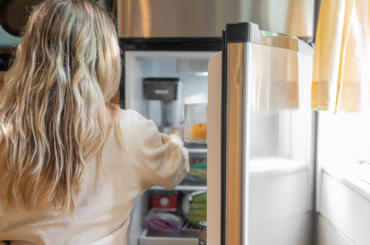Before you say to your kids, “Look at me when I’m talking to you!” or worry that they’re being rude by not making eye contact with Grandma, consider that they may have good reason to look away. It turns out that averting their gaze can actually help kids concentrate on what is being said, process information, and reduce the stress of the situation.
Children are constantly expected to listen, observe, learn new things, recall information, and navigate social dynamics with different people—both at home and at school. And, as most parents have probably observed, kids can frequently get overwhelmed by all of this and melt down, or seem to simply tune out altogether.
Meanwhile, research has repeatedly shown that making eye contact with someone else is so powerful that it can distract us, making us self-conscious and capturing our attention away from the mental task at hand. So looking away can be an effective coping mechanism that allows kids to follow their thoughts and focus on the proper response.
Still feel like looking away signals a lack of attention? Consider this: A study published in Memory & Cognition observed eight-year-olds as they answered questions that ranged in difficulty. The more difficult the question, the more likely the children were to look away from the person asking the question. The research concluded that “the primary function of averting gaze is to manage the cognitive load involved in the processing of environmental information.”
In another study in the British Journal of Developmental Psychology, researchers taught five-year-olds to use gaze aversion as a learning strategy. Half of the kindergarteners were encouraged to look away when trying to answer a series of questions, and those children ended up answering a lot more of the difficult questions correctly than the group who was not coached to look away. According to the study, “Teaching and encouraging [gaze aversion] during challenging cognitive activity promises to be invaluable in promoting learning, particularly during early primary years.”
These scientific findings can be useful reminders for parents (as well as teachers and coaches) as we try to get our kids to absorb information and respond to our requests. Next time you’re trying to have an important talk, give your child some space to process what you said. And keep in mind that if they look away it might not mean they’re ignoring you, letting their minds wander, or just being rude—in fact, it might mean they’re even more focused than usual.







